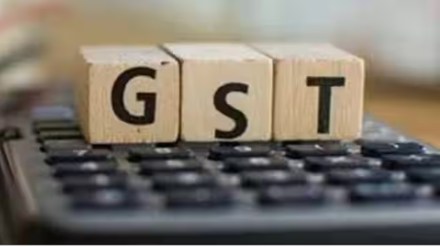The Goods and Service Tax (GST) Council on Saturday decided to give big tax relief to millet-based flour, in keeping with the government’s policy to encourage consumption of these protein-rich grains. It also paved the way for setting up of the much-delayed GST Appellate Tribunal by defining the eligibility norms and age limits for its president and members, whereby advocates with at least 10 years of experience could also be judicial members of the tribunals.
At its 52nd meeting, the Centre-states body chaired by Union finance minister Nirmala Sitharaman also decided to keep extra-neutral alcohol (ENA) used for manufacture of alcohol for human consumption out of the ambit of GST so that states can decide how to tax it.
The Centre-states body also decided to reduce the GST on molasses, in a move that will help the sugar industry to clear payments to sugarcane farmers on time, and reduce the cost of cattle feed.
The GST rate on prepackaged/labelled flour with 70% millet composition by weight has been cut to 5% from 18%; such flour sold loose won’t attract any tax. This means the Council chose to give an even bigger tax relief to these products than the rate fitment committee recommended. The panel had proposed exemption for powdered millet, but was against any tax incentive for labelled/ branded products.
The Council clarified that in terms of personal guarantees, when no consideration is paid by the company to the director in any form, directly or indirectly, no tax will be paid in supply of such services.
However, with respect to corporate guarantee between two related parties, that is between parent company and the subsidiary, the Council decided to tax the service provided in the form of 1% of the amount of such guarantee offered, or the actual consideration, whichever is higher. The 1% of the service provided or the actual consideration (which is specified) will be liable for 18% GST.
“The taxation of corporate guarantees is a complex issue with different implications for different industries. The GST Council’s recommendation to levy tax on such transactions with a predefined valuation would bring certainty to the taxation regime. However, certain industries, such as power utilities, petroleum, agricultural, and real estate, could be negatively impacted by the said recommendation,” said Saurabh Agarwal, tax partner, EY.
MS Mani, partner, Deloitte India, noted that the Centre’s decision to cede the right to tax ENA to the states was despite the Allahabad High Court decision (that favoured the Centre). “This speaks very highly of the cooperative federalism that GST has enabled,” he said.
According to the Council’s decisions, the GSTAT president will have an age cap of 70 years and members’ maximum age will be 67 years. The industry has been waiting for the Tribunal for six years and the Council’s decision is expected to clear appeals pending for long.
In the meeting, many states are learnt have taken up the issues concerning the taxation of online gaming, including the flurry of tax notices served on the gaming companies. States like Delhi called for withdrawal of these “retrospective-tax” notices.
The Centre, however, stuck to its stance that these tax demands, which reportedly add up to Rs 1.5 trillion and are much higher than the turnover of these companies for the relevant years, are not retrospective in nature. According to the Centre, the liabilities were already existing by the virtue of entry of betting or gambling in the GST laws. The notices have been issued based on the law that existed earlier, said revenue secretary Sanjay Malhotra.
As per the decision taken by the Council in early August, 28% GST will apply on online gaming, casinos and horse racing on the full value of bets placed rather than the gross gaming revenue (platform fee). As per a notification issued by the Centre, the decision came into effect on October 1.
Malhotra also said that all the states have agreed to pass the necessary laws in their respective legislative assemblies to implement the 28% GST. As of now, 18 states have passed the relevant laws, while 13 are yet to do so.
Among the other decisions. the supply of all goods and services by Indian Railways shall now be taxed under forward charge mechanism to enable them to avail ITC (input tax credit). This has been done to reduce the cost for railways.
The council clarified the admissibility of export remittances received in a special rupee-Vostro account, as permitted by RBI, for the purpose of consideration of supply of services to qualify as export of services.
India’s millet production, including sorghum (jowar), pearl millet (bajra), finger millet (ragi) in the 2021-22 crop year (July-June), was 15.9 million tonne (MT).
India is one of the leading producers of millet in the world with an estimated share of around 41% in the global production. Millets were notified as nutri-cereals by the government in April 2018 and these cereals were included under the POSHAN mission Abhiyan. 2023 is being observed as the Year of Millet.
